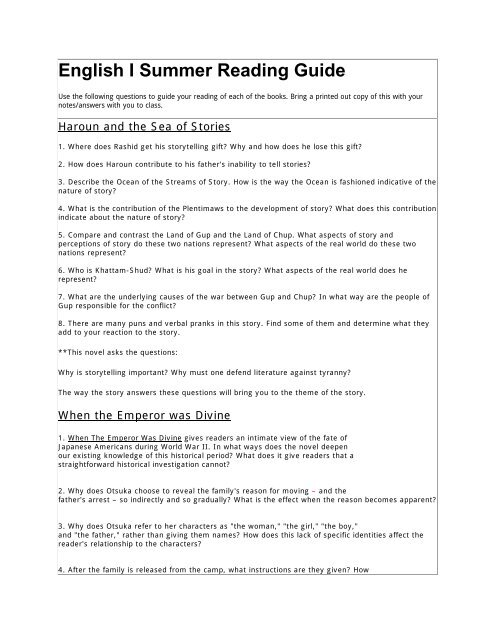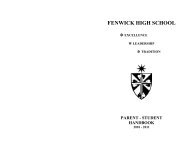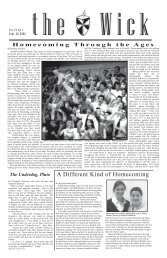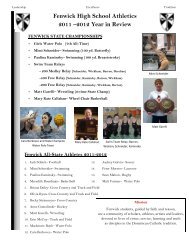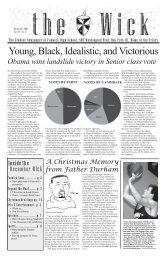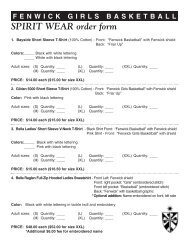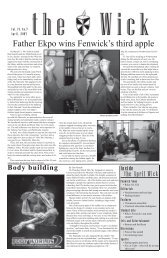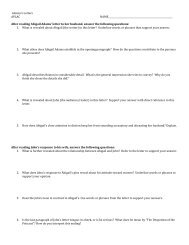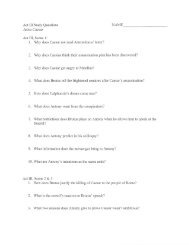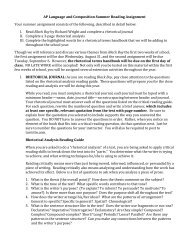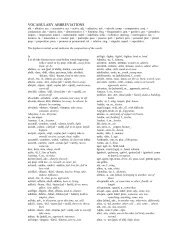English I Summer Reading Guide
English I Summer Reading Guide
English I Summer Reading Guide
You also want an ePaper? Increase the reach of your titles
YUMPU automatically turns print PDFs into web optimized ePapers that Google loves.
<strong>English</strong> I <strong>Summer</strong> <strong>Reading</strong> <strong>Guide</strong>Use the following questions to guide your reading of each of the books. Bring a printed out copy of this with yournotes/answers with you to class.Haroun and the Sea of Stories1. Where does Rashid get his storytelling gift? Why and how does he lose this gift?2. How does Haroun contribute to his father's inability to tell stories?3. Describe the Ocean of the Streams of Story. How is the way the Ocean is fashioned indicative of thenature of story?4. What is the contribution of the Plentimaws to the development of story? What does this contributionindicate about the nature of story?5. Compare and contrast the Land of Gup and the Land of Chup. What aspects of story andperceptions of story do these two nations represent? What aspects of the real world do these twonations represent?6. Who is Khattam-Shud? What is his goal in the story? What aspects of the real world does herepresent?7. What are the underlying causes of the war between Gup and Chup? In what way are the people ofGup responsible for the conflict?8. There are many puns and verbal pranks in this story. Find some of them and determine what theyadd to your reaction to the story.**This novel asks the questions:Why is storytelling important? Why must one defend literature against tyranny?The way the story answers these questions will bring you to the theme of the story.When the Emperor was Divine1. When The Emperor Was Divine gives readers an intimate view of the fate ofJapanese Americans during World War II. In what ways does the novel deepenour existing knowledge of this historical period? What does it give readers that astraightforward historical investigation cannot?2. Why does Otsuka choose to reveal the family's reason for moving – and thefather's arrest – so indirectly and so gradually? What is the effect when the reason becomes apparent?3. Why does Otsuka refer to her characters as "the woman," "the girl," "the boy,"and "the father," rather than giving them names? How does this lack of specific identities affect thereader's relationship to the characters?4. After the family is released from the camp, what instructions are they given? How
do they regard themselves? How does America regard them? In what ways have they been damagedby their internment?5. When The Emperor Was Divine concludes with a chapter titled "Confession."Who is speaking in this final chapter? Is the speech ironic? Why has Otsukachosen to end the novel in this way? What does the confession imply about ourability to separate out the "enemy," the "other," in our midst?


